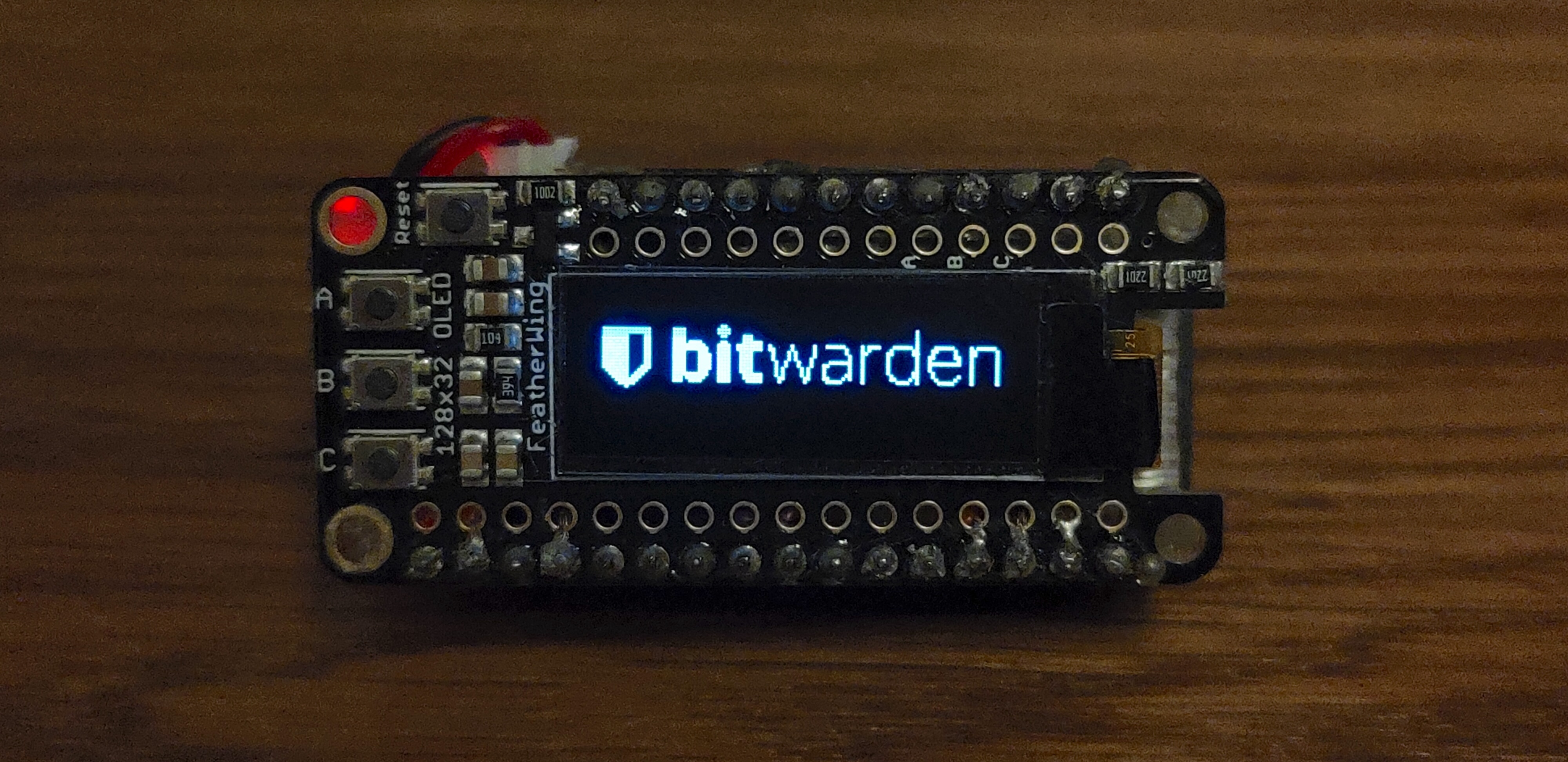Playground for experimenting with a Bitwarden Hardware Key.
This project is built on the popular ESP32 platform. The ESP32 is a low-cost, low-power microcontroller with integrated Wi-Fi and Bluetooth capabilities. It is a popular choice for IoT projects and is well supported by multiple frameworks. We are using esp-rs which based on ESP-IDF, the official development framework for the ESP32. EPS-IDF is written in C, but esp-rs provides a Rust wrapper around it. ESP-IDF is in turn based on FreeRTOS, a popular real-time operating system.
This project is currently being developed on an Adafruit HUZZAH32 – ESP32 Feather Board connected to a 128x32 SSD1306 OLED Feather Wing. The HUZZAH32 board is a development board for the ESP32 microcontroller. It has a built-in USB-to-Serial converter, making it easy to program and debug. It also has a built-in LiPo battery charger, making it easy to power the board with a rechargeable battery.
This project does not currently support simulation/emulation.
The following steps are based on https://github.com/esp-rs/esp-idf-template#prerequisites. Please refer to that document in case this one is outdated.
-
brew install cmake ninja dfu-util libuv -
Optional:
brew install ccache -
xcode-select --install -
/usr/sbin/softwareupdate --install-rosetta --agree-to-licenseIf you get an error similar to the following:WARNING: directory for tool xtensa-esp32-elf version esp-2021r2-patch3-8.4.0 is present, but tool was not found ERROR: tool xtensa-esp32-elf has no installed versions. Please run 'install.sh' to install it.or:
zsh: bad CPU type in executable: ~/.espressif/tools/xtensa-esp32-elf/esp-2021r2-patch3-8.4.0/xtensa-esp32-elf/bin/xtensa-esp32-elf-gcc -
Make sure rustup is installed: https://rustup.rs/ (ideally this is how you've installed rust on your system)
-
cargo install espup espflash cargo-espflash- If you have issues with OpenSSL you can try an alternative binary install:
cargo install binstallcargo binstall espup espflash cargo-espflash
- If you have issues with OpenSSL you can try an alternative binary install:
-
cargo install cargo-generate ldproxy cargo-espflash -
espup install -
. $HOME/export-esp.shThis step must be done every time you open a new terminal. See other methods for setting the environment in https://esp-rs.github.io/book/installation/riscv-and-xtensa.html#3-set-up-the-environment-variables -
Clone repository
In theory cargo run should be enough.
Issue: esp-rs/esp-idf-template#174
If you get an error similar to the following:
The C compiler
"/Users/andreas/code/playground/esp32-playground-win/.embuild/espressif/tools/xtensa-esp32-elf/esp-12.2.0_20230208/xtensa-esp32-elf/bin/xtensa-esp32-elf-gcc"
is not able to compile a simple test program.
It fails with the following output:
Change Dir: /Users/andreas/code/playground/esp32-playground-win/target/xtensa-esp32-espidf/debug/build/esp-idf-sys-9cd14215ea73b32d/out/build/CMakeFiles/CMakeTmp
Workaround: CRATE_CC_NO_DEFAULTS=1 cargo run
NOTE: This will likely also cause issues with the rust-anaylzer VS Code extension. You can use the same workaround by editing your VS Code settings.json (open the file by searching for Preferences: Open User Settings (JSON)) and adding the following:
"rust-analyzer.cargo.extraEnv": {
"CRATE_CC_NO_DEFAULTS": "1"
}